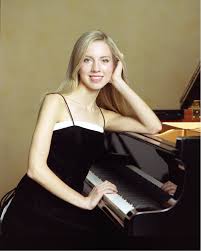 USC Symphony Orchestra and guest artists Beijing Guitar Duo and mezzo-soprano Janet Hopkins take to the stage
USC Symphony Orchestra and guest artists Beijing Guitar Duo and mezzo-soprano Janet Hopkins take to the stage
The University of South Carolina’s premier orchestra plays the music of three Spanish composers and transports you to Spain for an evening at the Koger Center for the Arts on Tuesday, November 17 at 7:30 p.m.
The Beijing Guitar Duo joins the USC Symphony Orchestra for Joaquín Rodrigo’s Concierto madrigal. The composer, who was blind since age three, got his inspiration for the work from a 16th-century Italian madrigal, “O felici occhi miei” (Oh happy eyes of mine).
The Beijing Guitar Duo has performed throughout Europe, Asia and North America, racking up accolades along the way. The San Francisco Examiner described the duo as “Particularly skillful in fingering of rapid passages...uncanny synchronization.” The South Florida Classical Review wrote, “They capitalize on the rich palette of sounds the two-guitar medium is capable of, approaching the music with deeply felt expression.” Their debut CD Maracaípe, received a Latin-GRAMMY nomination for the titled piece, which was dedicated to them by renowned guitarist/composer Sergio Assad. Their second CD, Bach to Tan Dun, has been widely noted for the world-premiere recording of Tan Dun’s Eight Memories in Watercolor, specially arranged for the duo by Manuel Barrueco. Meng Su and Yameng Wang came to their partnership with exceptional credentials, including a string of competition awards. Ms. Su’s honors include victories at the Vienna Youth Guitar Competition and the Christopher Parkening Young Guitarist Competition, while Ms. Wang was the youngest guitarist to win the Tokyo International Guitar Competition at the age of 12, and was invited by Radio France to perform at the prestigious Paris International Guitar Art Week at age 14. Both artists have given solo recitals in China and abroad, and had made solo recordings before they formed the duo.
Metropolitan opera veteran Janet Hopkins sings Manuel de Falla’s El amor brujo (Love, the Magician), which draws on the rich heritage of Andalusia with roots in the folk tradition. Ms. Hopkins debuted as a soprano at The Metropolitan Opera during the 1991-1992 season in The Ghost of Versailles, returning during the next seasons for Siegrune in Die Walküre, Parsifal and the Overseer in Elektra. While on tour with The Met in Japan, she sang a series of solo recitals in Tokyo, garnering extensive critical acclaim. As a mezzo-soprano, Hopkins sang Cosi fan Tutte with the Eugene Opera and served apprenticeships with the Michigan Opera Theatre and Des Moines Metro Opera. While making her vocal change, Ms. Hopkins was awarded grants and prizes from The Luciano Pavarotti International Voice Competition, the American Opera Auditions and the Wagner Society Grant along with a study grant from the Singers Development Fund of The Metropolitan Opera. In addition to touring extensively with The Met, Ms. Hopkins has performed in Japan, throughout Europe and the U.S. and has appeared at Carnegie Hall and at the opening ceremonies of the 1980 Winter Olympics in Lake Placid, NY. Ms. Hopkins is associate professor of voice at the University of South Carolina.
Also on the program is Joaquín Turina’s La oración del torero (Prayer of the Bullfighter). The work combines conventional music forms with the composer’s Andalusian, particularly Sevillian, heritage in a style that also absorbs Romantic and Impressionistic elements.
Tickets on sale now Tickets: $30 general public; DISCOUNTS: $25 senior citizens, USC faculty and staff; $8 students. Call 803-251-2222 or Koger Box Office, corner of Greene and Park Streets (M-F 9 a.m. to 5 p.m.) or online at kogercenterforthearts.com.



